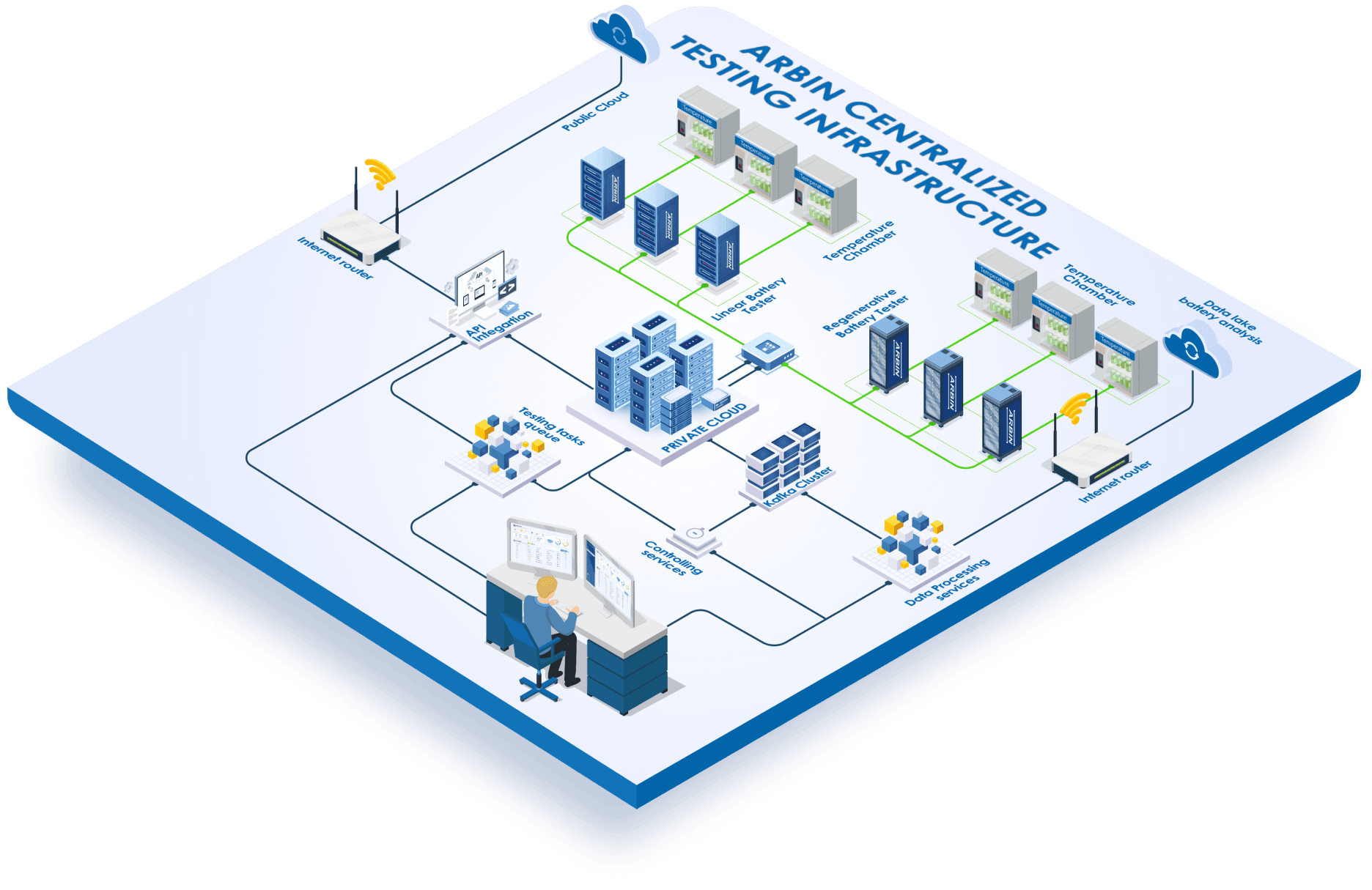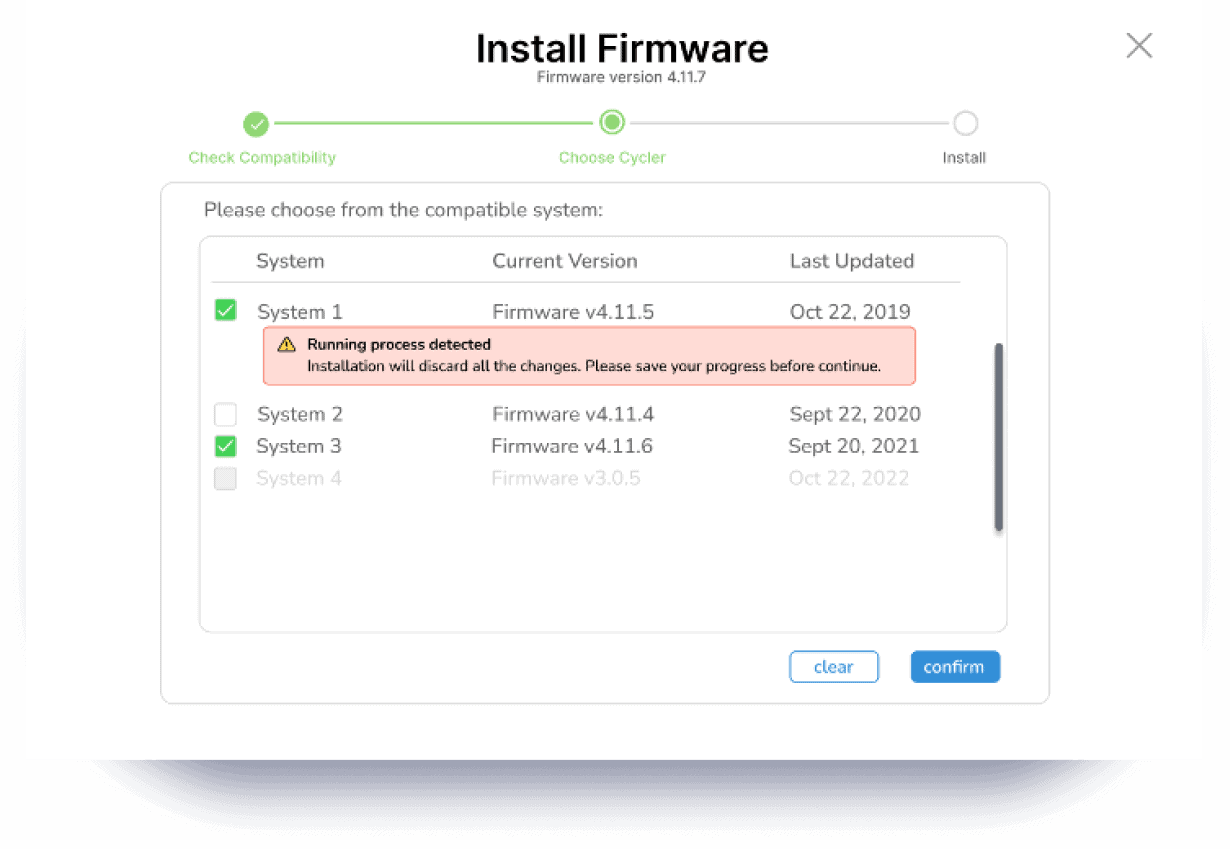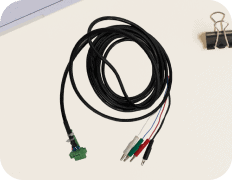Arbin Centralized Testing Infrastructure

系统 Components
Desktop PCs
Deploying MITS software on a private cloud platform enhances the system's flexibility, scalability, and security.
Arbin Testing Systems
Perform various tests and measurements, transmitting data in real time to the MITS software.
Temperature Chambers
Perform various tests and measurements, transmitting data in real time to the MITS software.
Monitoring and Control
This remote access allows users to view live data, check equipment statuses, and troubleshoot remotely.
测试软件 应用
Kafka Service
MITS software receives raw data from the devices and conducts the essential processes of data cleaning, format conversion, and initial analysis.
On Cloud Backup
MITS provides continuous status updates on the test equipment and data, reporting back to the user's interface.
API Integration
Offered by Arbin, it enables remote monitoring and control of the MITS software and connected devices.
Database System
Includes local and remote databases (including cloud-based databases), used for data storage and backup.
Controlling Service
Includes local and remote databases (including cloud-based databases), used for data storage and backup.
Testing tasks queue
Includes local and remote databases (including cloud-based databases), used for data storage and backup.
Data Processing services
Includes local and remote databases (including cloud-based databases), used for data storage and backup.
Upgrade & Downgrade Management
For ease of use, we support over-the-air (OTA) firmware installation through the Web UI, using AIBin files.
An AIBin file contains the firmware's hex as well as hardware-firmware-software compatibility details to prevent version-matching issues.

优势
资源 Management
The ability to centralize management of all devices, channels, Auxiliary, temperature chambers, and machine to machine communication across different systems are great benefits for operators or lab administrators.
Test Devices & MCU (Microcontroller Unit)
Each Arbin test device includes an MCU that executes specific testing tasks and generates data from those tests.
Auxiliary Devices
Through the MCU, auxiliary devices like temperature controllers and power supplies can communicate with the MITS Pro software in the private cloud.
Data Exchange
The private cloud directly interfaces with the MCUs in test devices, efficiently managing data exchanges and process controls.
Apache Kafka
After collecting data, the MITS Pro software sends that data to Apache Kafka, a robust distributed messaging system designed for handling extensive data streams.
Data Processing Services
Data streams from Kafka are processed by services that perform tasks including data cleaning, transformation, and analysis.
Data Lake
After processing, data is stored in a data lake-a centralized repository that facilitates the storage, searching, and analysis of large volumes of data.
High Availability
Arbin's software infrastructure covers multiple solutions for data storage. This includes remote databases and cloud databases such as AWS, Azure, and Google Cloud. With this flexibility, you can easily access your data at anytime, anywhere you need it.
Data Streaming Service
Apache Kafka is a powerful distributed streaming platform known for its high throughput, scalability, and fault tolerance. The following features make Kafka ideal for the real-time, large-scale battery testing data
Kafka's flexible, powerful data processing features allow you to make the most of your battery testing data.
Processing Service (Micro-services)
Microservices facilitate continuous data delivery and deployment while enhancing the scalability of your applications. The microservices architecture offers the following advantages for data processing:
By adding these benefits to your battery testing ecosystem, microservices allow you to innovate at a rapid pace.
Controlling
Services
Using Arbin Clients (C#, Python, Webservice) to remotely control and manage all Arbin Devices in a central management server will enable robust integration and higher performance solutions to battery testing infrastructure. Also, they can globally manage all channels under testing in a single application.






